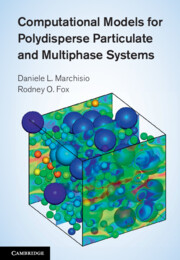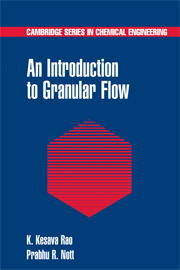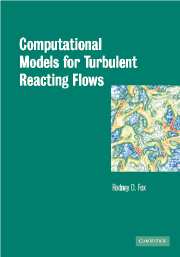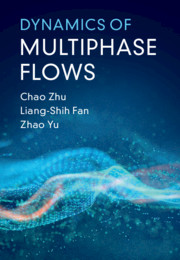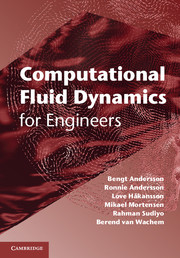Computational Models for Polydisperse Particulate and Multiphase Systems
Providing a clear description of the theory of polydisperse multiphase flows, with emphasis on the mesoscale modelling approach and its relationship with microscale and macroscale models, this all-inclusive introduction is ideal whether you are working in industry or academia. Theory is linked to practice through discussions of key real-world cases (particle/droplet/bubble coalescence, break-up, nucleation, advection and diffusion and physical- and phase-space), providing valuable experience in simulating systems that can be applied to your own applications. Practical cases of QMOM, DQMOM, CQMOM, EQMOM and ECQMOM are also discussed and compared, as are realizable finite-volume methods. This provides the tools you need to use quadrature-based moment methods, choose from the many available options, and design high-order numerical methods that guarantee realizable moment sets. In addition to the numerous practical examples, MATLAB® scripts for several algorithms are also provided, so you can apply the methods described to practical problems straight away.
- Provides consistent and detailed coverage of the theory that governs disperse multiphase flows, helping you to understand the different approaches and their relationship with the underlying theory
- Discusses practical examples of a range of quadrature-based moment methods, showing you how to choose among the many available options and design high-order numerical methods that guarantee realizable moment sets
- Includes numerous practical examples and provides MATLAB scripts for several algorithms, enabling you to apply the described methods to your own practical problems
Product details
March 2013Hardback
9780521858489
544 pages
253 × 178 × 28 mm
1.21kg
80 b/w illus. 25 tables 8 exercises
Available
Table of Contents
- Introduction
- Part I:
- 1. Disperse multiphase flows
- 2. Two example systems
- 3. Mesoscale modeling approach
- 4. Closure methods for moment transport equations
- 5. A road map
- Part II. Mesoscale Description of Polydisperse Systems:
- 6. Number density functions (NDF)
- 7. NDF transport equation
- 8. Moment transport equations
- 9. Flow regimes for the PBE
- 10. The moment closure problem
- Part III. Quadrature-based Moment Methods:
- 11. Univariate distributions
- 12. Multivariate distributions
- 13. Extended quadrature method of moments (EQMOM)
- 14. Direct quadrature method of moments (DQMOM)
- Part IV. The Generalized Population Balance Equation:
- 15. Particle-based definition of the NDF
- 16. From the multi-particle-fluid joint PDF to the GPBE
- 17. Moment transport equations
- 18. Moment closures for the GPBE
- Part V. Mesoscale Models for Physical and Chemical Processes:
- 19. An overview of mesoscale modeling
- 20. Phase-space advection: mass and heat transfer
- 21. Phase-space advection: momentum transfer
- 22. Real-space advection
- 23. Diffusion processes
- 24. Zero-order point processes
- 25. First-order point processes
- 26. Second-order point processes
- Part VI. Hard-Sphere Collision Models:
- 27. Monodispere hard-sphere collisions
- 28. Polydispere hard-sphere collisions
- 29. Kinetic models
- 30. Moment transport equations
- 31. Application of quadrature to collision terms
- Part VII. Solution Methods for Homogeneous Systems:
- 32. Overview of methods
- 33. Class and sectional methods
- 34. Method of moments
- 35. Quadrature-based moment methods
- 36. Monte Carlo methods
- 37. Example homogeneous PBEs
- Part VIII. Moment Methods for Inhomogeneous Systems:
- 38. Overview of spatial modeling issues
- 39. Kinetic-based finite-volume methods
- 40. Inhomogeneous PBE
- 41. Inhomogeneous KE
- 42. Inhomogeneous GPBE
- 43. Concluding remarks
- Appendices: A. Moment-inversion algorithms
- B. Kinetic-based finite-volume methods
- C. Moment methods with hyperbolic equations
- D. Direct quadrature method of moments fully conservative.

